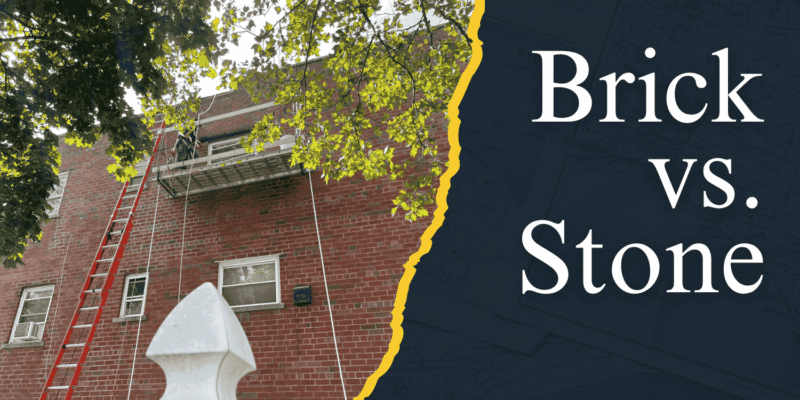When it comes to building or upgrading a home in Long Island, choosing the right exterior material affects your home’s value, durability, and even how much maintenance you’ll deal with. Homeowners often find themselves weighing two classic options: brick or stone. Both add character and curb appeal, but each comes with its own pros and trade-offs. The smartest move is to consult experienced masonry contractors Long Island to ensure you choose a material that fits your style, budget, and local weather conditions. So, which one deserves a spot in your backyard or front façade? Let’s break it down.
Brick vs Stone: Comparing Both for Your Long Island Home
Both brick and stone have stood the test of time in Long Island neighborhoods, from quaint coastal homes to sprawling estates in Nassau and Suffolk. Brick brings a classic, uniform look, while stone leans rustic and organic, blending seamlessly with natural surroundings. But beyond looks, the right choice depends on durability, climate resistance, maintenance, and budget. Let’s explore how these two materials truly stack up.
1. Durability and Weather Resistance
Long Island weather is tricky with icy winters, salty sea breezes, and humid summers. Brick handles moderate weather changes well, but stone is practically invincible. On the other hand, stone resists erosion, fire, and moisture, making it ideal for homes near the coast. That said, high-quality brick laid by an experienced masonry contractor Long Island can last decades without losing strength.
2. Aesthetic Appeal and Design Flexibility
Do you picture a warm, traditional home or a natural, earthy façade? Brick offers a timeless, symmetrical look, often associated with colonial or suburban charm. Stone, on the other hand, is more dramatic and organic. Its irregular shapes and color variations make every installation unique. If your home’s style leans modern rustic or you want a standout exterior, stone might win the beauty contest.
3. Maintenance and Longevity
Here’s the thing: both materials can last over a century, but it’s maintenance that sets them apart. Brick may require occasional repointing to fix mortar joints, especially in older homes or basements. Stone rarely requires repairs unless subjected to extreme conditions. If you’re already thinking about basement waterproofing Long Island services, pairing it with stone foundations might reduce water-related headaches down the line.
4. Cost Considerations
Stone is usually the pricier option. Between quarrying, transportation, and installation, natural stone comes with a premium. Brick, while still an investment, is more budget-friendly for most Long Island homeowners. Of course, the final cost depends on the design complexity and the expertise of your chosen masonry contractors Queens or nearby Long Island specialists. A skilled contractor can help you maximize curb appeal without overshooting your budget.
5. Environmental Impact
Eco-conscious homeowners often ask which is greener. Brick is made from natural clay and can be recycled, but its manufacturing requires energy. Stone is directly sourced from the earth with minimal processing, giving it a lower carbon footprint. If sustainability is on your checklist, stone earns extra points here.
Which Should You Choose?
If low maintenance and rugged durability are your priorities, stone is hard to beat. But if you want a balance of cost-effectiveness, classic charm, and proven weather resistance, brick is still a fantastic option for Long Island homes.
Ultimately, the best choice isn’t about following trends; it’s about what fits your home’s style, budget, and lifestyle. Consulting an experienced masonry contractor in Long Island can help you make an informed decision, ensuring your home stays beautiful and resilient for decades.

